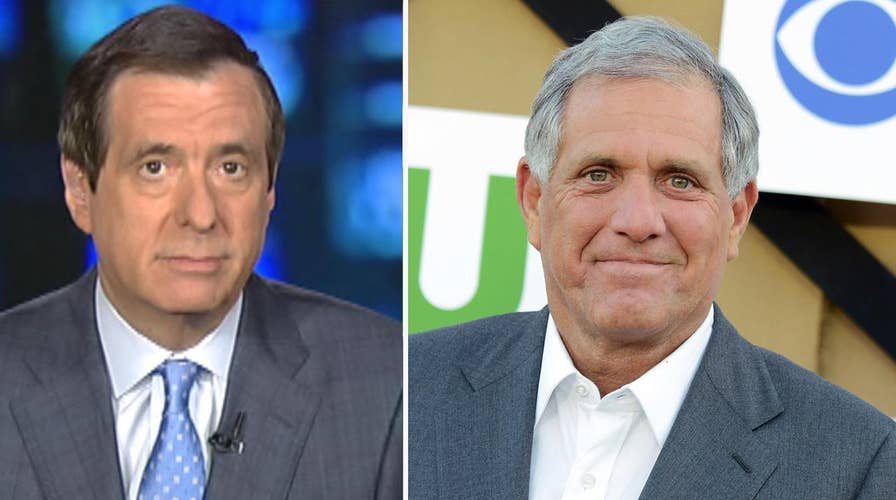Kurtz: How dogged reporting toppled a Fortune 500 CEO
'MediaBuzz' host Howard Kurtz weighs in on the reporting that brought down CBS CEO Les Moonves after multiple allegations of sexual misconduct.
Les Moonves is the most powerful person to be toppled by the "#MeToo" movement.
And he was knocked off his seemingly unassailable perch atop CBS on the strength of two magazine articles.
Given that journalism is much maligned these days, and for good reason, it's worth remembering that Moonves would still be running the top-rated broadcast network if not for the dogged reporting of Ronan Farrow in the New Yorker.
What Farrow reported about Moonves on Sunday—which, not so coincidentally, is the day that the CBS board finalized his ouster—is absolutely chilling.
Farrow is the man who, along with The New York Times, exposed the horrendous conduct of Harvey Weinstein and drove him out of the movie business. Farrow was pursuing those allegations for NBC, of course, which is still doing damage control on why it didn't run the story and let Farrow walk out the door.
The downfall of Charlie Rose and of Matt Lauer attracted more attention because they were big-time TV personalities. But Moonves has been a Hollywood force for decades. The onetime child actor has controlled one of the biggest media corporations for 15 years. Harvey was a niche player compared to Les.
The independent CBS board avoided a public relations fiasco. Despite these harrowing accusations, reports in recent days said that Moonves was going to walk away with a $100 million severance package. And even though he may have been contractually entitled to that huge sum, it would have looked like CBS was paying off an alleged predator.
At the moment, Moonves is getting nothing. The board decided to defer any payout until after two outside law firms finish their investigation. He could still walk away with a bundle once the spotlight has faded, unless CBS wants to argue that he was fired for cause and deserves zero. Remember, this is a guy who has been making $70 million a year, so he's not going to need food stamps regardless of the outcome.
The Farrow article is nothing short of stunning. Take the case of former television executive Phyllis Golden-Gottlieb, who appeared on "GMA" yesterday. She said that in the 1980s Moonves forced her to perform oral sex in a car, and on another occasion "he reaches over and pulls me up and throws me, I mean hard, against the wall," leaving her on the floor crying.
Golden-Gottlieb said she didn't complain because she was a single mother who needed the job, and that he later retaliated against her and "absolutely ruined my career."
Another woman, Jessica Pallingston, an assistant in the 1990s, said Moonves gave her wine, forcibly kissed her and forced her to perform oral sex. She said he groped her on subsequent occasions and he turned hostile when she resisted, and eventually her career fell apart.
In his statement, Moonves said that "in my 40 years of work, I have never before heard of such disturbing accusations. I can only surmise they are surfacing now for the first time, decades later, as part of a concerted effort by others to destroy my name, my reputation, and my career."
His denial would be more convincing if he hadn't said that his relationships with three of the six women in the New Yorker piece were consensual—but refuse to say which ones.
As part of the settlement, CBS also gets to dismiss litigation that might have led to a takeover by Viacom, which now won't happen for at least two more years.
On "CBS This Morning," anchor Norah O'Donnell said this:
"Les has always treated me fairly and with respect. Still, for me, it's been another sleepless night thinking about this."
But, she added, "there is no excuse for this alleged behavior. It is systematic and it is pervasive in our culture. And this I know is true to the core of my being: women cannot achieve equality in the workplace or society until there is a reckoning and a taking of responsibility."
Not an easy position to be in.
Les Moonves was long thought to be untouchable, given the profits he brought to CBS. That he’s now out is a direct result not just of Farrow’s reporting but of the women who were willing to publicly recall the most humiliating episodes of their lives.














































